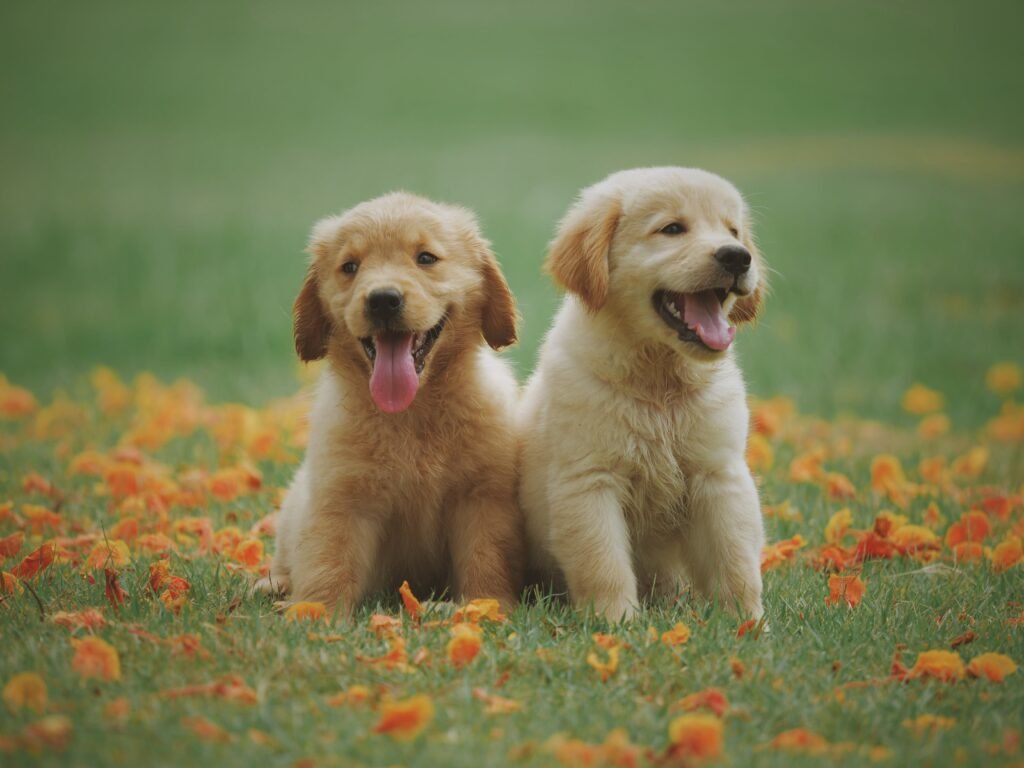Looking After A Puppy

Getting a dog is incredibly exciting — but it’s also a big commitment. If you’ve decided that now is the right time, you’re likely to have started making a few preparations for your new furry friend already.
Before you get a dog, you’ll need to be sure that you can meet your new pet’s welfare needs. This means looking at costs, your lifestyle and your home, as well as researching the breed to make sure that you choose a pup that you can care for properly.
Whether they’re small and cute or large and fluffy, our guide to looking after your new puppy will help you to plan for the big day.
Before your puppy’s arrival (less than 8 weeks old)
So you’ve decided on your puppy — you’ve spoken to a breeder or the adoption home and you’ve set a date to collect your four-legged friend. Time to sit back and enjoy your last moments of peace and quiet, right?
Wrong!
There’s lots to do to prepare for your puppy’s arrival. Whether you’re doing last minute puppy-proofing, registering with a vet or booking onto training classes, make the most of this time before the puppy arrives to ensure that everything is sorted.
What you need
- Crate or bed
- Blankets, teddy and hot water bottle
- Food and water bowls
- Puppy food
- Collar and a tag
- Harness and lead
- Toys
- Puppy pads and poo bags
- Dog shampoo
- Treats and chews
- Pet Insurance
- Puppy carry bag
- Car harness
Bringing a puppy home (8-12 weeks old)
It’s important to remember that your new dog is still young, and their first few days in their new home, whilst delightful for you, could well be distressing for the puppy. Being away from the warm nest filled with their brothers and sisters could be daunting, so be sure to create a cosy sleeping place filled with blankets and cuddly toys for them to nuzzle into as they rest.
At this point, your puppy isn’t fully vaccinated yet. You should still handle them a lot to keep them socialised and begin to leave them for short periods of time so that they become accustomed to being alone. At this stage it’s important to establish routine and rules, and reward good behaviour with treats and playtime.
Ask For !!
- Kennel Club registration forms
- Pedigree certificate
- Dietary advice sheet
- Worming and vaccination details
- Healthcare advice
- A blanket with their litter’s scent
Puppy training and socialisation (12 weeks Plus)
At 12 weeks, your puppy will be eligible to have their second round of vaccinations, meaning that you can begin to socialise them outside — taking them for walks and to meet other dogs.
At this stage, you can think about enrolling in puppy training classes. Classes are a perfect way to boost your puppy’s confidence whilst giving you the opportunity to learn training methods. Find out what motivates your puppy — whether that’s treats, toys or praise — to ensure that you can reward them properly.
- Cautiously introduce your puppy to large and small dogs
- Introduce your puppy to people of all genders and ages
- Go to puppy training classes
- Begin to leave your puppy alone for short periods of time
Further dog training and neutering (6 months Plus)
Even at six months old, puppies are still learning every day. At this age, continue with reward-based training and keep all experiences positive to ensure that they build good connections.
Enforced time in a crate at this age will be good to keep your puppy calm, giving them time to rest without being overstimulated. This will also help them to develop bladder control, as they don’t like to go to the toilet in their den.
As your puppy’s dietary requirements are changing, be sure to progress them onto adult dog food, as recommended by your vet. Small dogs should stay on puppy food until they are between 6-10 months in age, medium breeds should eat puppy food for up to a year, and large dogs may not progress onto adult dog food until they are 15-18 months of age.
At this point, you can also progress onto more advanced dog training classes if it’s necessary, and ask your vet about neutering.
Puppy care
So whether you’re an experienced dog owner or are a novice, our guide to looking after your new puppy should help you to ensure that you give your dog the best start in life. Rewarding them, socialising them well and introducing them to new situations will help them to become a well-rounded and obedient family pet.
Find your loving pet at BuyAPet.co.uk – ENTER HERE
Need Pet Supplies/Accessories BuyAPet Shop is your Number 1 Shop – ENTER HERE
